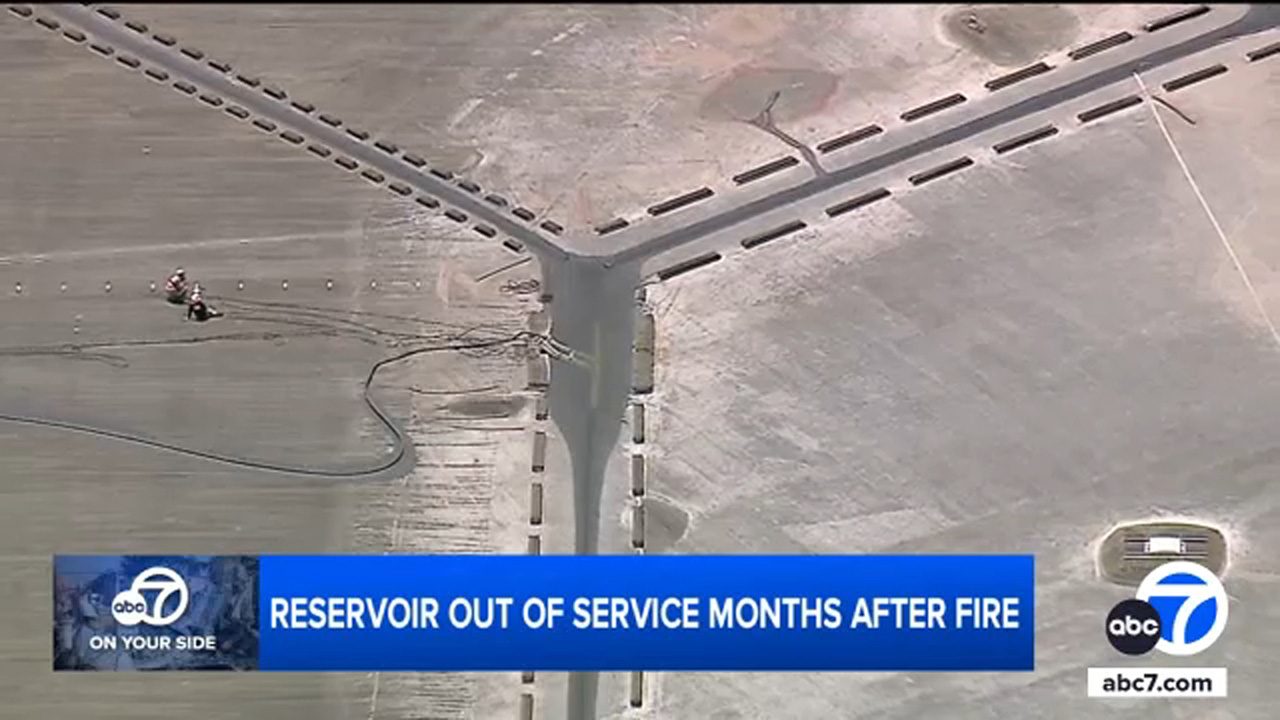LA councilmembers move to expand pilot program that guaranteed families $1,000 a month
Participants said the funds helped them pay tuition, start a small business and cover expenses such as clothes for children.
LOS ANGELES (KABC) -- Three Los Angeles City Council members introduced a motion Tuesday to expand a guaranteed basic income program geared toward victims of domestic abuse and foster youth.
Councilmen Curren Price, Marqueece Harris-Dawson and Hugo Soto- Martinez are seeking $4 million to $5 million that could be used to expand the pilot program, and Price and Soto-Martinez also announced their intention to allocate $1 million each to support a potential future program.
The councilmen held a news conference Tuesday outside City Hall and unveiled the results of the pilot, which occurred from January 2022 to March 2023. The Basic Income Guaranteed: Los Angeles Economic Assistance Pilot (known as BIG:LEAP) provided 3,200 households living below the poverty level with $1,000 in cash each month for 12 months.
Price proposed the program in 2021, and it was implemented by the city's Community Investment for Families Department. Officials found that the program helped families cover emergency expenses and reduced food insecurity. Participants also reported that the unrestricted funds helped them pay school tuition, start a small business and cover expenses such as clothes and shoes for children.
"Through this program, we witnessed transformation beyond measure," Price said. "BIG:LEAP didn't just help Angelenos address health issues, school expenses, child care, or emergency needs; it empowered participants to start businesses, move into their own homes, and reclaim hope from despair. The undeniable impact of programs like BIG:LEAP speaks volumes -- it has the power to rewrite destinies and is vital for a brighter future."
Ashley Davis, a program participant whose son has autism and is deaf in one ear, was also at the news conference. She said she was expected to attend his therapy sessions for about 50 hours a week -- "and I didn't now when I was going to work," she told ABC7. "Most of the therapy was during 9 to 5, so I didn't know where it was going to come from."
She is now working on becoming a nurse while caring for her son.
"This program -- just the duration of the time that I was in it -- it kept me out of a domino effect."
Representatives of the Center for Guaranteed Income Research at Penn's School of Social Policy & Practice and UCLA's Fielding School of Public Health provided additional insights into research about the program.
"This is the first large-scale randomized controlled trial in North America studying intimate partner violence, guaranteed income, and community violence since the late 1970s," said Amy Castro, associate professor at Penn's School of Social Policy and Practice.

"What we saw within the pilot was exactly how much change could take place," Castro added.
The council members hope to use an expanded program to further assist individuals experiencing intimate partner violence and transitional age youth, who are current or former foster youth between the ages of 16 and 24.
"The city of Los Angeles is working urgently to provide Angelenos with economic opportunities and resources in our efforts to alleviate poverty throughout L.A. These are encouraging results and I'm looking forward to expanding this program in more stable economic times," Mayor Karen Bass said in a statement in response to the program's findings.
Abigail Marquez, general manager of the Community Investment for Families Department, noted that the pilot came about in an effort to help families severely impacted by COVID-19.
"We are excited by the findings of the report as it confirms what we already believed -- that families experiencing poverty should be trusted to spend money as they see fit and can improve their quality of life when we invest resources into them," Marquez said in a statement.
While the program has received some support, it's not without its critics.
A paper by Liesel Crocker, a senior research fellow at the Foundation for Government Accountability, a Naples, Florida-based think tank, cited what the group called a clear relationship between increased welfare benefits and decreased workforce participation.
Universal basic income programs could discourage work and trap people in a cycle of dependency that would cost taxpayers, Crocker wrote.
The Howard Jarvis Taxpayers Association also weighed in, calling universal basic income programs "unsustainable, unaffordable and inappropriate."
"It's simply wrong for the city government to take tax dollars earned and paid by people who are trying to pay their own bills and transfer that money to other people chosen by the government to receive it," the association said in a statement to City News Service. "Guaranteed income programs are appropriately funded voluntarily by charitable organizations and foundations, not forcibly through the tax code."
Other areas in California that have implemented such programs include Oakland, Marin County, San Francisco and Santa Clara County.
City News Service contributed to this report.







